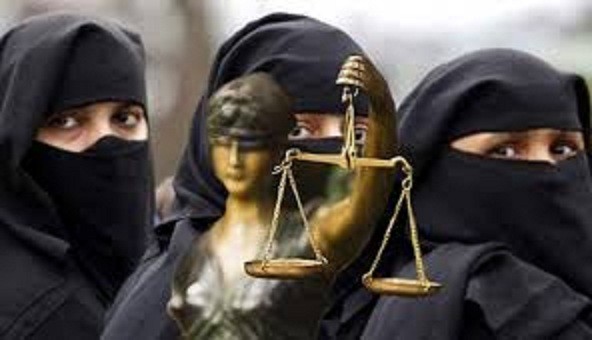
New Delhi: An NGO spearheading the movement against triple talaq today welcomed the draft law prepared by the Centre to curb the practice, but demanded that it should also prescribe arbitration before divorce as well as ban ‘halala’ and polygamy.
According to the draft law, giving instant triple talaq will be illegal and void and will attract a jail term of three years for the husband.
The bill also proposes social security and other safeguards for victims, besides giving options to the wife to seek custody of minor children and demand maintenance for herself and dependent children.
“While we welcome the provisions (of the draft law), the glimpses of this bill as appearing in the press, leave a lot to be desired. While the bill pronounces triple talaq as an offense, it has not given an alternative method for divorce,” the Bharatiya Muslim Mahila Andolan (BMMA), one of the petitioners before the Supreme Court on the issue of triple talaq, said in a statement.
The NGO has been advocating ‘Ahsan method’ of divorce wherein the arbitration last for a minimum 90 days and is mandatory even before the beginning of the divorce process.
“Unless arbitration before divorce proceedings is not made mandatory, the proposed law will only criminalise a certain method without providing an alternative,” the organisation, which has over 70,000 Muslim women as its member, said.
Along with triple talaq, other discriminatory practices like halala, mut’ah marriage and polygamy must also be addressed in the bill, it demanded.
Halala refers to a practice where a woman has to consummate her marriage with another man before she can return to her former husband.
Mut’ah marriage is regarded as a temporary marriage which is only for a specified duration.
“Mut’ah marriage, which has an inbuilt divorce provision, must also be struck down as there cannot be any automatic divorce.
“If polygamy is not struck down, we may see a spike in polygamy as men will resort to polygamous marriages without resorting to divorce, or giving a staggered divorce over three months and then remarrying,” the NGO argued.
The organisation said the proposed law must also talk about age of marriage, ‘mehr’ amount, consent of the parties, maintenance within marriage and right to matrimonial home, it said.
Rights of widows and divorced women must also be included in the proposed law, it added.
BMMA had draft a law against triple talaq, a copy of which was sent to the prime minister in 2015.
Since the apex court declared triple talaq “unconstitutional and arbitrary”, the NGO has sent a copy of its draft law to 62 women parliamentarians across all parties and also to various ministries.
The organisation has demanded that a special committee of ministers, headed by Home Minister Rajnath Singh, should consider their draft law, which the group had prepared after consulting thousands of Muslim women, experts and scholars.
The BMMA also wants such a committee to make public the entire proposed bill before it is introduced in Parliament.


.jpeg)

